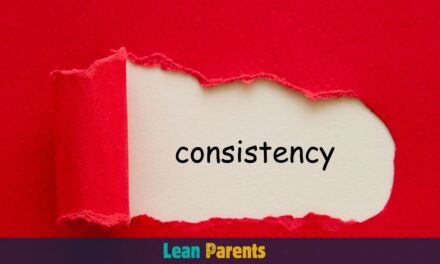Dealing with a teen’s disrespect can be tough. It’s filled with frustration, hurt, and a need to regain control. But, there’s a way to handle it calmly and effectively. This approach can make your home environment more cooperative and respectful.
Key Takeaways
- Understand the root causes of disrespectful behavior, such as developmental changes, hormonal shifts, and external factors.
- Recognize the signs of disrespect, including backtalk, non-verbal cues, and defiance.
- Implement active listening techniques to validate your teen’s feelings and encourage open dialogue.
- Establish clear boundaries and consistently enforce them to promote a respectful environment.
- Build a positive relationship with your teen through shared activities and genuine interest.
This guide will show you 10 powerful strategies to manage disrespect calmly. By the end, you’ll have the tools to handle this tough parenting phase with confidence and compassion1.
A study by Carolyn Webster-Stratton found that kids who act out may get less support from teachers. This can harm their relationships with teachers2. Also, 93% of parents face disrespect from their kids, and 85% of kids show disrespect to assert control or independence2. Knowing why kids act out is key to fixing the problem.
Understanding the Root Causes of Disrespect
Teenagers often show disrespect due to their growth stages. They want more freedom and to find their own identity. This can lead to them pushing boundaries and acting out against parents and others in charge. This is a normal part of growing and plays a big role in why teens may disrespect3.
Developmental Changes and Search for Independence
Teens are going through big changes as they grow. They want to be more independent and find out who they are. This can sometimes show up as disrespect towards parents and others in authority. Knowing this and being understanding can help parents deal with these issues better4.
Hormonal Shifts and Emotional Sensitivity
Puberty brings changes in hormones that can make teens moody and sensitive. These changes can cause them to react quickly and sometimes disrespectfully. It’s hard for them to control their feelings, leading to outbursts and defiance.
External Factors: Peer Pressure, School Stress, and Insecurities
Things outside of themselves also play a part in teen disrespect. School stress, social pressures, and personal doubts can make teens frustrated and anxious. They might take out their feelings on their parents. Peer pressure and wanting to fit in can also make teens disrespect authority figures3..
Understanding why teens act disrespectfully helps parents and caregivers find better ways to handle it. Knowing about growth, hormones, and outside pressures helps in being more understanding and supportive. This way, we can work on building better relationships with our teens43..
Recognizing the Signs of Disrespectful Behavior
Disrespectful behavior in teens can show up in many ways. It’s key for parents to spot these signs early. One common sign is backtalk, where teens speak rudely or argue back5. This can lead to more fights and hurt a parent’s authority.
Disrespect can also show in non-verbal cues like eye-rolling. It shows disdain or frustration. A negative attitude, including sarcasm or sulking, is another sign5. These signs can disrupt family life as much as verbal disrespect.
Ignoring Instructions and Defiance
When a teen refuses to follow instructions or acts like they didn’t hear them5, it’s a clear sign of disrespect. This defiance can lead to more tension and conflict in the family.
“Disrespect is a common part of teenage development, with not all teenagers being rude or disrespectful.”6
Not all teens act disrespectfully, and it’s a normal part of growing up6. They’re searching for independence and figuring out who they are. Spotting disrespect early helps parents deal with it and build a better relationship with their teen.
Disrespectful behavior can really affect family life. It’s vital for parents to handle it well. By understanding why it happens and knowing the signs, parents can help their teens be more respectful and positive576.
Disrespectful Behavior’s Impact on Family Dynamics
When a teen shows disrespectful behavior, it can really hurt the family. It can make parents feel less in charge and cause a lot of arguing. Healthy family relationships are key to good mental health8. Disrespect can lead to stress, bad ways to deal with problems, and even affect how they interact with others later8.
Disrespect can show up in many ways, like yelling, ignoring, or not listening. It makes people feel ignored and left out8. Things like family problems, mental health issues, and unclear rules can cause this disrespect8. It’s important to find the cause and work on talking better to fix the family’s harmony9.
Disrespect affects more than just the parent and child. It can also hurt siblings. Younger ones might copy the bad behavior, and others might feel left out because of the teen’s actions8. It can also make the whole family feel unhappy and resentful9.
To deal with disrespectful behavior, families need to talk better, set clear rules, and be caring. By focusing on family harmony and parental authority, families can get through tough times and become closer9.
It’s key to understand that disrespectful behavior often comes from deep issues like cultural differences, mental health problems, or past traumas10. Talking openly, going to family therapy, and being kind can help families break the cycle of disrespect. This way, they can build strong, harmonious relationships10.
The Power of Active Listening

Effective communication is key in handling disrespectful behavior in teens. Active listening is a powerful strategy. It means focusing fully on what they say, getting their message, and responding well. Keeping eye contact and nodding shows you’re engaged and helps calm the situation11.
Repeat Back and Validate Feelings
Another active listening method is to repeat what you’ve heard and validate their feelings. This shows you get their point, even if you don’t agree. It also shows you value their thoughts11.
Ask Open-Ended Questions
Using open-ended questions can get your teen to open up more. This helps you understand why they act out. It leads to deeper, more meaningful talks11.
| Key Active Listening Techniques | Benefits |
|---|---|
| Maintain Eye Contact and Nod | Demonstrates engagement and attention, helps defuse tension |
| Repeat Back and Validate Feelings | Shows understanding and values teen’s perspective, reduces frustration |
| Ask Open-Ended Questions | Encourages deeper sharing, helps identify underlying issues |
Using these active listening methods can improve your talks with your teen. It leads to a more respectful conversation and helps you understand them better. This is a great way to manage disrespectful behavior and strengthen your bond11.
“Active listening was first coined in 1957 by psychologists Carl Rogers and Richard Farson11. It involves fully concentrating on what the other person is saying, understanding their message, and responding thoughtfully.”
Setting Clear Boundaries and Expectations
Setting clear rules and expectations is key when dealing with disrespectful teens. Getting your teen involved in making rules can make them more likely to follow them12. It’s important to have clear family rules and boundaries to help teens understand what’s expected of them12.
Creating a family behavior contract can help everyone remember the rules and what happens if they’re broken. This can make everyone more aware of their actions and how they affect others12.
It’s important to stick to the rules and follow through with consequences. This shows teens that disrespect won’t be accepted and that there are clear actions for breaking the rules13. When teens know what happens if they act out, they’re more likely to behave better13.
Using consequences like changing the subject, walking away, or limiting who they talk to can help teach them respect13.
Involve Your Teen in Creating Rules
12 Focusing on giving privileges instead of taking them away can motivate teens to behave better12. By letting your teen help set rules, you can make them feel more responsible and invested in the family’s well-being12.
Consistent Enforcement and Follow-Through
13 Keeping the rules consistent and following through with consequences is vital for a respectful home13. When teens know disrespect won’t be tolerated and there are clear consequences, they’re more likely to behave13.
12 It’s important to address disrespect calmly and quickly. This shows your teen that staying calm is important, even when they’re upset12. By handling disrespect in a calm way, you set a good example and teach your teen about respect and cooperation12.
14 Healthy boundaries can make you feel valued, respected, and safe, says Dr. Leela R. Magavi14. Dr. Carla Marie Manly notes that disrespecting boundaries can lead to serious problems like depression and trauma14.
| Boundary-Setting Strategies | Benefits |
|---|---|
| Involve teens in creating rules | Fosters a sense of shared responsibility and investment |
| Consistent enforcement of rules | Reinforces the importance of respect and cooperation |
| Focus on privileges over punishments | Encourages positive behavior change |
| Address disrespect promptly and calmly | Sets a positive example and reinforces the need for respect |
12 Spending quality time together as a family can strengthen your bond12. It’s also good to seek help when parenting gets tough, like calling the Texas Youth Helpline at 1-800-989-688412.
“Setting clear boundaries and expectations, along with consistent enforcement, can create a more harmonious family dynamic and help teens develop a greater sense of respect and responsibility.”
Non-Confrontational Responses to Disrespect
When faced with disrespectful behavior, it’s key to respond calmly. Research shows that saying “I understand you’re upset, but that tone is not acceptable” can show disapproval without causing more trouble15. Keeping calm and not getting angry helps to encourage good behavior and set clear rules16.
Dealing with teenage disrespect can be tough. By understanding their feelings, like frustration or stress, and showing empathy, you can calm things down. This opens the door for a real conversation16. It helps fix the immediate issue and builds a better relationship over time.
- Avoid reacting in a way that makes things worse.
- Use “I” statements to share your feelings and concerns without blaming.
- Clearly tell the person what behavior is not okay.
- Offer different ways they can express their feelings or needs.
- Remind them of the expected behavior and what happens if they disrespect again.
By staying calm and using non-confrontational responses, you can handle disrespectful behavior well. This method not only sets clear rules but also opens up for better communication and positive changes1516.
“The way we communicate with others and with ourselves ultimately determines the quality of our lives.”
– Anthony Robbins
Building a Positive Relationship with Your Teen
Creating a good relationship with your teen is key to handling disrespect. By doing things they like and showing real interest in their world, you can grow closer. This way, teens are more open to listening and learning, leading to better behavior17.
Engage in Activities They Enjoy
Make time to do things your teen loves. It could be a hobby, a sport, or trying new things together. These moments can make your bond stronger and help you talk openly17.
Show Genuine Interest and Empathy
Show you care by listening well, asking smart questions, and understanding their feelings. Being empathetic and understanding can lessen disrespect.18 When you acknowledge their feelings, even if you don’t agree with their actions, trust grows. This leads to a more respectful and cooperative relationship18.
“Using love, patience, hugs, listening, and constant respect can help manage disrespectful teenage behavior effectively.”18
By being positive and understanding, you create a space where your teen feels valued and respected. This encourages them to show respect back1819.
Encouraging Open Dialogue and Communication

Dealing with disrespectful behavior in teens starts with open dialogue and good communication. Developmental changes, like the search for independence, are key in this.20 Hormonal changes can make mood swings and impulsive actions worse, leading to tough behavior.20 Creating a safe space for your teen to share their thoughts and feelings helps build trust.
Talking openly can help you understand and solve these tough behaviors together. Stress from school, peer pressure, and personal doubts can show as disrespect.20 Listening to your teen and understanding their feelings helps you tackle the real issues.
“Effective communication, such as active listening and open dialogue, is crucial in managing disrespectful behavior in teens.”
Signs of disrespect include backtalk, eye-rolling, ignoring you, and always being negative.20 By talking about these behaviors with empathy, you show respect and encourage your teen to talk openly.
Disrespect can lead to constant tension and conflict, hurting family trust and respect.20 Talking openly and understanding each other can help bring back trust and cooperation.
Managing disrespectful behavior is tough, but open communication and support can help. You and your teen can face these challenges together and grow closer.
Consistent Discipline and Consequences
It’s key to have consistent discipline to handle disrespect21. Make sure the consequences for disrespect are clear and fair. This helps your teen see how serious their actions are and why they must respect others21. It’s important to stick to these rules to show disrespect won’t be accepted.
Fair and Proportional Consequences
When dealing with disrespect, it’s vital to have consequences that fit the crime21. The punishment should match the offense. This way, your teen gets it and feels accountable. Keeping it fair helps your family feel balanced and responsible.
Reward Positive Behavior with Praise
It’s better to praise good behavior than just punish bad22. When your teen is respectful, celebrate it. This encourages them to keep being respectful. It’s a great way to make your family happier and more united22.
| Consequence | Description |
|---|---|
| Timeout | Removing the teen from the situation for a brief period to allow them to calm down and reflect on their behavior. |
| Loss of Privileges | Temporarily revoking access to electronics, social activities, or other privileges as a consequence for disrespectful behavior. |
| Restitution | Requiring the teen to make amends, such as apologizing or helping with a chore, to address the impact of their disrespectful actions. |
By being consistent with discipline and rewarding good behavior, you can handle disrespect well. This makes your family more respectful and peaceful2122.
When to Seek Professional Help
Managing disrespectful behavior in teens can be tough. Sometimes, you might need professional help. If your teen’s behavior is affecting their mental health, school work, or relationships, a therapist or counselor can help. They offer strategies for both parents and teens23.
These experts can also support parents dealing with a difficult teen. They teach effective ways to communicate and discipline. Plus, they provide emotional support to help parents handle the stress24.
Therapists and Counselors for Guidance
Therapists and counselors are key in tackling disrespectful behavior. They find out why the behavior happens, like changes in development or peer pressure25. They help teens and parents improve communication and set boundaries for a better relationship.
Support for Parents and Teens
Support groups for parents and teens are also helpful. These groups offer a place to share experiences and get advice on handling disrespect24. They help you feel less alone and more ready to tackle the issue together.
Seeking professional help shows you’re strong, not weak. It’s a step towards understanding and fixing disrespectful behavior23. With the right support, you and your teen can build a healthier, more respectful bond.
Practicing Self-Care for Parents
Dealing with a disrespectful teen can be very tough on parents26. It’s crucial to take care of yourself. Getting support from friends, family, or groups can really help26. Talking to others who face similar issues can make you feel less alone and more connected.
It’s also key to stay positive and patient when handling26 disrespectful behavior. Celebrating small wins, like when your teen is respectful, keeps hope alive26. Keeping a positive attitude and knowing change takes time are essential for success.
Seeking Support from Friends and Family
Talking to trusted friends and family can be a big help26. Sharing your struggles can make you feel supported and give you new ideas26. Also, having your support network involved can open up more resources and strategies for you.
Staying Positive and Celebrating Small Victories
Keeping a positive mindset is vital when facing disrespect from a teen26. Acknowledging small achievements, like respectful talks, keeps you motivated26. Seeing progress, no matter how small, shows that change is possible and your efforts are valued.
By focusing on self-care, seeking support, and staying positive, parents can handle disrespect more effectively26. Remember, you’re not alone in this. Taking care of yourself helps you support your teen better and build a healthier relationship.
Disrespectful Behavior: Powerful Strategies
Managing disrespectful behavior in teens requires a comprehensive approach. Understanding the causes, recognizing signs, and using effective techniques are crucial. This helps create a more respectful and harmonious family environment27.
Being patient and persistent is a key strategy28. Consistent discipline and consequences are important. But, building a positive relationship with your teen is equally crucial. Enjoy activities together, show genuine interest, and encourage open dialogue to foster mutual respect28.
- Establish clear boundaries and expectations, involving your teen in the process27.
- Practice active listening, validating your teen’s feelings, and using open-ended questions to promote understanding27.
- Respond to disrespectful behavior in a non-confrontational manner, avoiding escalation28.
- Model emotional regulation and positive communication skills to guide your teen’s behavior27.
Addressing disrespectful behavior is a long-term effort. By using these strategies, parents can create a more respectful home. This helps teens develop important skills for success28.
| Effective Technique | Description |
|---|---|
| Setting Clear Boundaries | Involve your teen in creating rules and expectations, ensuring consistent enforcement and follow-through. |
| Active Listening | Maintain eye contact, repeat back, validate feelings, and ask open-ended questions to promote understanding. |
| Non-Confrontational Responses | Avoid escalating the situation and remain calm when addressing disrespectful behavior. |
| Modeling Positive Behavior | Demonstrate emotional regulation and respectful communication to guide your teen’s behavior. |
By using these strategies, parents can manage disrespectful behavior in teens. This creates a more harmonious family environment2728.
Conclusion
Managing Disrespectful Behavior in teens is a common challenge. The right strategies and support can help. Understanding the reasons, recognizing signs, and using effective communication and discipline are key. Though it may be tough, a consistent and caring approach can lead to positive changes and a stronger parent-child bond29.
Practicing mindfulness or meditation can help manage disrespect calmly and constructively30. Knowing when to forgive and when to set firmer boundaries is important. This helps deal with disrespectful behavior effectively.
With the tools and insights from this guide, parents can confidently tackle Disrespectful Behavior in their teens30. Setting boundaries helps build mutual respect and trust. Taking responsibility for setting clear boundaries and communicating them can prevent disrespect29.
Resilience can be boosted through neurally inspired behavioral interventions. Mindfulness meditation is shown to be effective.
The Key Takeaways from this guide on managing Disrespectful Behavior in teens are crucial. Open communication, consistent discipline, and building a positive relationship are key. By using these strategies, parents can create an environment of mutual respect. This helps teens develop the social-emotional skills needed for success30.
Tolerating disrespect can lead to decreased self-confidence and resentment. It can create a cycle of disrespect. This highlights the need for decisive action.
FAQ
What are the common signs of disrespectful behavior in teens?
How can parents establish clear boundaries and expectations to manage disrespectful behavior?
Why is building a positive relationship with your teen important for reducing disrespectful behavior?
When should parents consider seeking professional help to address disrespectful behavior?
What self-care strategies can help parents cope with the challenges of managing disrespectful behavior?
Source Links
- The Best De-escalation Plan for Defiant and Disrespectful Students – Kiddie Matters
- Drawing the Line: Tips to Handle Angry Disrespectful Child Behaviour
- Calling Out/In Disrespect
- Understanding Disrespectful Children: Root Causes
- 20 Signs of Disrespect in a Relationship & How to Deal With It
- Disrespectful behaviour: pre-teens and teenagers
- 13 Telltale Signs Someone Doesn’t Respect You
- Setting Boundaries: Tips for Handling Family Member Disrespect
- How to Deal With Disrespectful Family Members
- How Do You Deal with a Disrespectful Grown Child?
- Active Listening; its Skills and Importance in the Workplace
- Setting Boundaries for Teen Behavior – Teens & Tweens – Discipline
- How to Deal with Someone Who Doesn’t Respect Boundaries — Kate O’Brien, LCAT
- Setting Healthy Personal and Emotional Boundaries—and Why It Matters
- How to Respond When You Feel Disrespected
- How to Deal With Disrespectful People: 12 Steps (with Pictures)
- Dealing with Disrespectful Teenager – Empower My Teen
- Arrogance and Disrespect – Its Not That Hard to Homeschool
- How Can Loving and Kind Parents Cope When Their Teens are Being So Mean?
- Managing a Disrespectful Teen: 10 Tips for Frustrated Parents – Jesse LeBeau
- Consequences that Teach Better Behavior (Instead of Punish)
- How to Positively Handle Punishment, Discipline, and Consequences
- Disrespectful Behavior in Health Care: Its Impact, Why It Arises and Persists, And How to Address It—Part 2
- Ask Women in Product: How do you deal with disrespectful direct reports?
- Disrespectful Child Behavior & Bad Behavior | Empowering Parents
- 3 Reasons Parents Accept Adult Children’s Disrespect
- 7 Ways to Stop Disrespectful Behavior
- 10 Ways to Deal With Disrespectful Children
- No title found
- Disrespectful Behavior – How To Deal With It The Right Way – Girl Has a Mind





